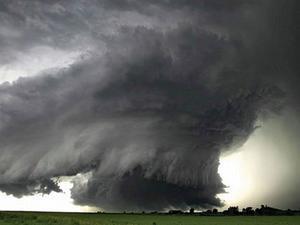I well understand the desire of all of us to "Save the planet", and our interest in all things low-carbon, but would like to issue a cautionary note, based on my observations of human nature and behaviour.
It is in our nature to believe that our actions have an effect upon the planet: every human civilisation has at one time or another worshipped planetary gods.
We believe that if we could live our lives a little better, then all will be well. Unfortunately, the planet doesn't seem to care - we cannot engineer its climate, it is futile to try, but that is exactly what some think we can do.
It occurs to me that the planet's climate has dramatically warmed and cooled many times without any human influence, and that climate experts do not understand what natural mechanisms cause this - but in this particular warming cycle, they are absolutely certain that human activity is the cause. There is a risk the experts are wrong, and that we might be missing something important if we stick only to that theory.
It is not sufficient reason to say a "scientific consensus" exists - history is littered with the wreckage of scientific consensus, from the flat-earth theory to more recent examples such as the non-existent millennium bug and scientists claiming mad cow disease was not a problem.
So what are we as human beings and engineers to do? We are faced with the current fashion for "low carb" engineering, but guidance on what is genuinely sustainable is hard to find, and there are already many vested or commercial interests at work. Our political representatives have issued "Part L" as our bible, and stated publicly that this will play a part in "saving the planet". I am comforted by their confidence, and the zeal some of my colleagues have shown for this issue. However, I have some nagging doubts, as they showed little interest in the past, even adopting practice and policies that actually discouraged meaningful energy conservation/sustainability.
Some want to force us to change everything for new, more energy efficient, installations, how else can we comply with building energy use targets. Is this what sustainability means? That perfectly good systems/buildings will have to be thrown away, along with the carbon footprint that produced them? I want genuinely to be involved in sustainable engineering - this makes sense, but a lot of what is going on at the moment is pure following of fashion and a lot of bullshit. Guidance on good practice is what we need, but where will this come from?
A final thought. Just after the war, the scientific consensus was that the earth could not produce enough food for six billion people. Now, there's a surplus, but we can't distribute it to those who might need it. Here's a problem that human beings have caused and could do something about: but will we? Or will we just expend great effort and money following the current fashion?
John Cooknell MCIBSE
Source
Building Sustainable Design





















No comments yet